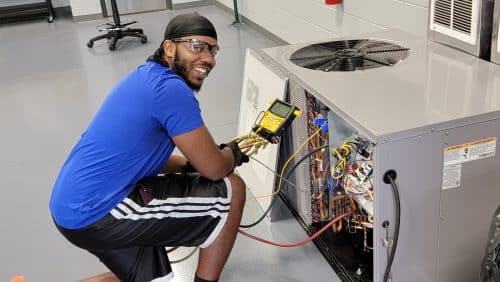Diagnostic Medical Sonography
Diagnostic Medical Sonography
Diagnostic Medical Sonography Program Mission Statement
The mission of the Diagnostic Medical Sonography Program at West Georgia Technical College is to prepare competent, compassionate, and highly skilled entry-level sonographers who are committed to excellence in patient care, lifelong learning, and ethical professional practice. Through a rigorous, student-centered curriculum that integrates didactic instruction, laboratory training, and supervised clinical experience, the program supports student success, fosters workforce readiness, and addresses the healthcare needs of the communities we serve.
In alignment with the mission and strategic goals of West Georgia Technical College, the program emphasizes innovation, technical proficiency, and interprofessional collaboration to produce graduates who are well-prepared for certification, employment, and continued professional growth in the dynamic field of diagnostic medical sonography.
Diagnostic Medical Sonography Program Learning Outcomes
Upon completion of the program, students will be able to:
- Demonstrate Clinical Proficiency
Perform diagnostic sonographic examinations with competence, accuracy, and efficiency across abdominal, obstetric, gynecologic, and vascular specialties, utilizing appropriate scanning protocols and techniques. - Apply Knowledge of Anatomy, Physiology, and Pathology
Correlate clinical data and imaging findings with normal and abnormal anatomical and physiological conditions to aid in accurate diagnosis. - Utilize Critical Thinking and Problem-Solving Skills
Analyze sonographic images and patient data to make informed decisions, troubleshoot technical issues, and adapt scanning techniques to patient needs and clinical scenarios. - Exhibit Professionalism and Ethical Practice
Model ethical behavior, cultural sensitivity, and compassionate care while maintaining patient confidentiality and adhering to the standards set forth by the Society of Diagnostic Medical Sonography (SDMS) and American Registry for Diagnostic Medical Sonography (ARDMS). - Communicate Effectively in a Healthcare Setting
Communicate clearly and professionally with patients, physicians, and healthcare team members, both verbally and in written documentation of findings. - Ensure Patient and Operator Safety
Apply safe scanning practices, including proper ergonomics and infection control measures, to minimize risk to patients and sonographers. - Demonstrate Preparedness for Credentialing
Meet the educational requirements and demonstrate readiness to successfully pass national credentialing examinations such as those offered by ARDMS or ARRT-Sonography. - Engage in Lifelong Learning and Professional Development
Recognize the importance of continuing education, evidence-based practice, and engagement in professional organizations to maintain competency and support career advancement.






